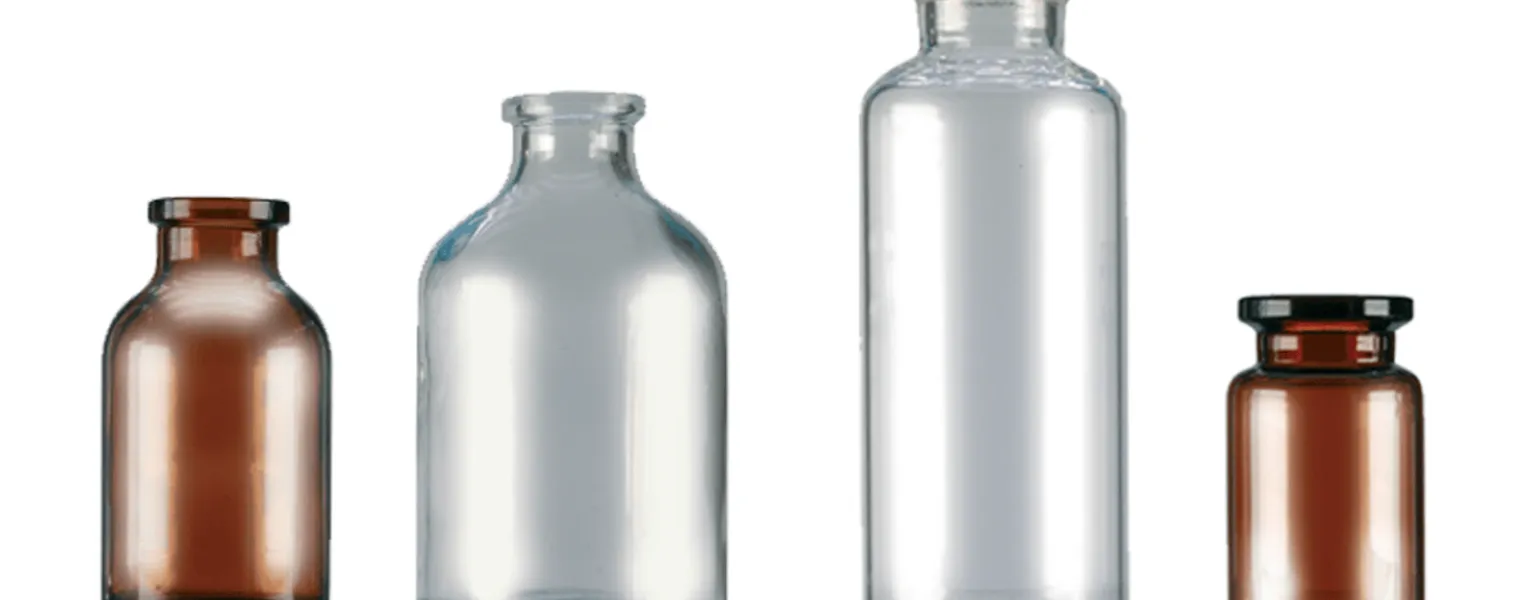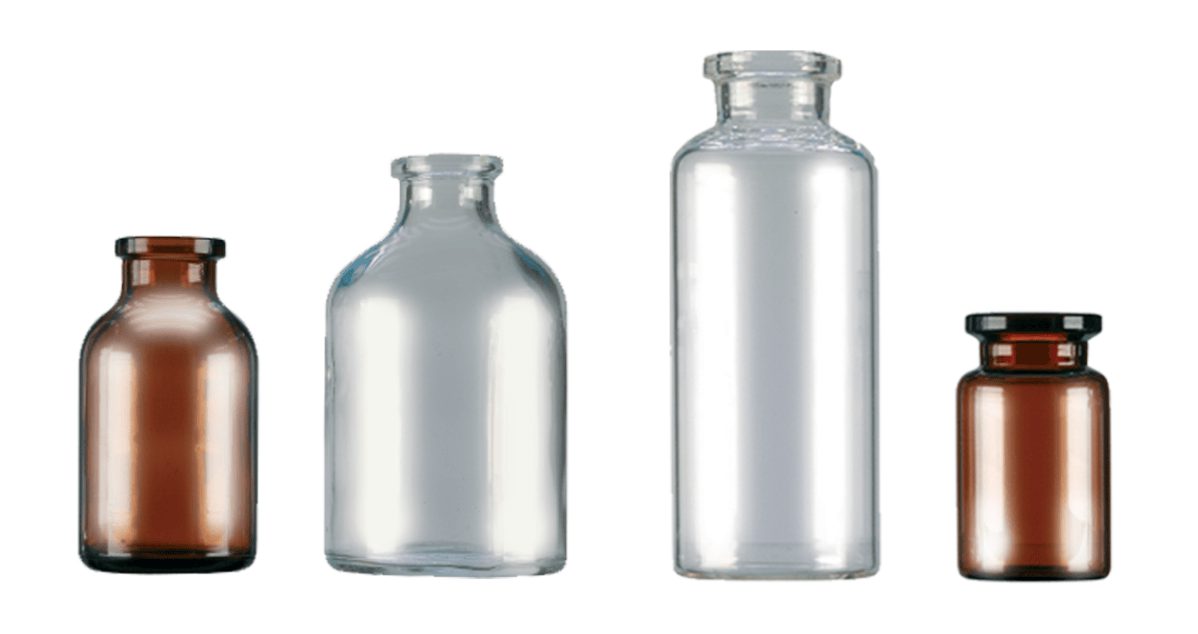Adelphi Healthcare Packaging: moulded vs tubular glass vials

Supplier News
Moulded vs tubular glass vials: how are they made?
Moulded Glass Vials are manufactured by cutting measured gobs from molten glass and feeding them into a mould. The vial shape is formed using a Press and Blow process or a Blow and Blow process. After the vial is made it is passed through an annealing lehr.
Tubular Glass Vials are hot-formed from a continuous length of Type I glass tubing.The neck is formed first using a flame and tool to create the perfect shape, after which heat is precisely applied to allow separation of the new vial from the continuous length of tubing, thus forming the base and determining the height of the vial. Tubular glass vials, like moulded vials are also passed through an annealing lehr to reduce stress caused by the hot-forming process.
Moulded vs tubular glass vials: what are the differences?
Visual differences
Tubular glass vials have a smooth, even surface and a thin, uniform wall thickness. They have a relatively flat base compared to the more concave base of a moulded vial.
Due to a less easily-controlled manufacturing process moulded glass vials have a less uniform wall thickness and uneven surface.
Moulded glass vials can be identified by markings on their bases called punt marks. These markings will usually include a mould number and a manufacturer’s mark: a symbol unique to the company who manufactured the vial.
Price difference
Due to the challenges of their respective manufacturing processes Tubular glass vials tend to be priced lower for smaller vial sizes, whilst Moulded glass vials become cheaper for large vial sizes, around 20ml and above.
Differences in performance
If you are planning to freeze dry product within the vial, Tubular glass vials are better-suited to lyophilisation (freeze drying) as they provide more consistent heat-transfer as a result of a thinner and flatter base.
Their thinner and more even wall structure also allows for greater clarity, ideal for visual inspection of the contents.

Conclusion
Both Moulded and Tubular Type I borosilicate glass vials are suitable for a variety of pharmaceutical applications, including injectable preparations.
Reasons for choosing one manufacturing method over another may come down to how you plan to use the vials, your historic preferences, or price sensitivity.
If you’re unsure which vial you should be using, please Contact Us and our experienced team will be happy to help.
This article was originally published by Adelphi Healthcare Packaging.
Related News
-
Supplier News
Adelphi supports St Peter & St James Hospice
-
Supplier News
Adelphi Masterfil acquires Karmelle, uniting decades of British manufacturing expertise
-
Supplier News
Why partner with Adelphi Healthcare Packaging?
-
Supplier News
Adelphi: Environmentally Preferable Purchasing – Key considerations for sustainably and ethically minded businesses
-
Supplier News
Adelphi Masterfil: Filling your low viscosity products – Top tips





